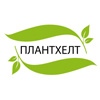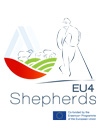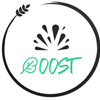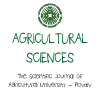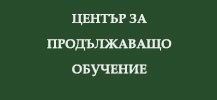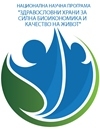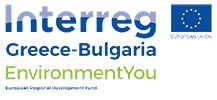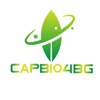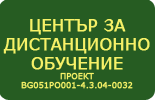Ethical Use of Information Sources
|
Course title: |
Ethical Use of Information Sources |
|
|
Course code: |
EUIS |
|
|
ECTS: |
3 |
|
|
In-class hours |
Lectures: |
15 |
|
Laboratory work/Tutorials: |
15 |
|
|
Self-preparation hours |
Practical training: |
- |
|
Other: |
- |
|
|
Total hours: |
30 |
|
|
Language: |
English |
|
|
Study cycle: |
BSc, Master, PhD |
|
|
Semester: |
Winter |
|
|
Faculty: |
Library |
|
|
Name of the lecturer(s): |
Petya Georgieva, PhD |
|
|
Mode of delivery: |
Face-to-face |
|
|
Prerequisites: |
Computer literacy |
|
|
Learning outcomes of the course unit: |
The proposed course aims to equip students with the knowledge and skills necessary to identify relevant sources when writing a research paper, literature review, or systematic review. I. The types of sources of information. The types of sources will depend on the stage of the research process, but all sources should be credible, up-to-date, and relevant. There are three main places to look for sources: - Research databases (specialized and scientometric databases and systems) - Institution’s library (journals, books, encyclopedias/references) - Other online resources (scholarly searches, social networks, etc.) II. The ethical use of information is essential in the course: Quoting, Paraphrasing, and Citing. The course also examines the ethical use of information sources, with Bulgarian and international citation standards, academic writing, and anti-plagiarism systems used by the Agricultural University. All these topics are related to scientific ethics and follow its principles. The course explains how to cite sources within the body of the paper and how to create a list of sources cited in your paper -- the "bibliography" or list of "references.” III. What is plagiarism? The next point in the course is plagiarism and how to avoid it. Plagiarism is the accidental or intentional use of someone else's ideas or works without properly citing the author. Whether accidental or intentional, the consequences are the same. It is our responsibility to understand and avoid plagiarism. IV. The part of the course “Ethical Use of Information Sources” is Academic Writing - a formal style of writing used in universities and scholarly publications. |
|
|
Course contents: |
1. Information sources in the field of agricultural sciences. 2. Information search. Indexing. Library electronic catalogues, Online Public Access Catalogue (OPAC). 3. Databases – annual subscription of CABI EBooks, EBSCO/Academic Search Ultimate, ScienceDirect, SSRN. Science metrics Databases and Citation Databases - Web of Science, SCOPUS. 4. Scholarly searches like Google Scholar and social networking sites like Research Gate and LinkedIn, Facebook, and Instagram. 5. Online scientific journals – Subscription and Open Access, provided by the AU Library. 6. Online databases and repositories – AGRIS, Digital Library, Digital Science Repository of Agricultural University, BPOS. 7. Citing. Using a consistent style in a bibliography (or reference list). APA style 7th edition. Creating a good bibliography of high-quality material. Bibliographic citation systems - Mendeley, EndNote, Zotero, Qiqqa. 8. Publication ethics – How to find and publish in scientific journals – Agricultural Sciences, the Journal of the Agricultural University of Plovdiv. Standards for Ethics and Publication Malpractice (COPE). 9. Avoiding Plagiarism. Plagiarism check systems – Grammarly and StrikePlagiarism. 10. Academic writing – Paraphrase, rewrite, and paraphrase text. |
|
|
Recommended or required reading: |
Business Administration Research Guide: Ethical Use of Information Sources. In Dakota State University. Available from: https://library.dsu.edu/c.php?g=22511&p=918427 Databases. Library of Agricultural University of Plovdiv. Available from: https://www.au-plovdiv.bg/en/library/databases Directory of open access journals. [online]: DOAJ, © 2018. Available from: http://www.doaj.org/. Electronic resources. Library of Agricultural University of Plovdiv. Available from: https://www.au-plovdiv.bg/en/library/electronic-resources Guidelines for APA Referencing and Essay Writing (2020). APA Style 7th Edition. Have, H. ten. (2012). Organizations and Guidelines. Encyclopedia of Applied Ethics (Second Edition), 297-306. Retrieved from: https://www.sciencedirect.com/science/article/pii/B9780123739322000119. Open Access. (2018). Der freie Zugang zu wissenschaftliher Information: Universitaet Konstanz. Available from: http://open-access.net/de_en/homepage/. Scribbr. https://www.scribbr.com/ Thiele, F. (2001). Research Conduct: Ethical Codes. In International Encyclopedia of the Social & Behavioral Sciences, 13224-13227. Retrieved from: https://www.sciencedirect.com/science/article/pii/B0080430767001911 What is Academic Writing? In Scribbr. Available from: https://www.scribbr.com/category/academic-writing/ |
|
|
Planned learning activities and teaching methods: |
Training in the discipline is conducted through lectures, complemented by practical exercises. The topics will be presented in presentation form. |
|
|
Assessment methods and criteria: |
The students should create a bibliography on their topic and complete a test. |
|
 - Събития по случай 80-я юбилей на АУ
- Събития по случай 80-я юбилей на АУ
